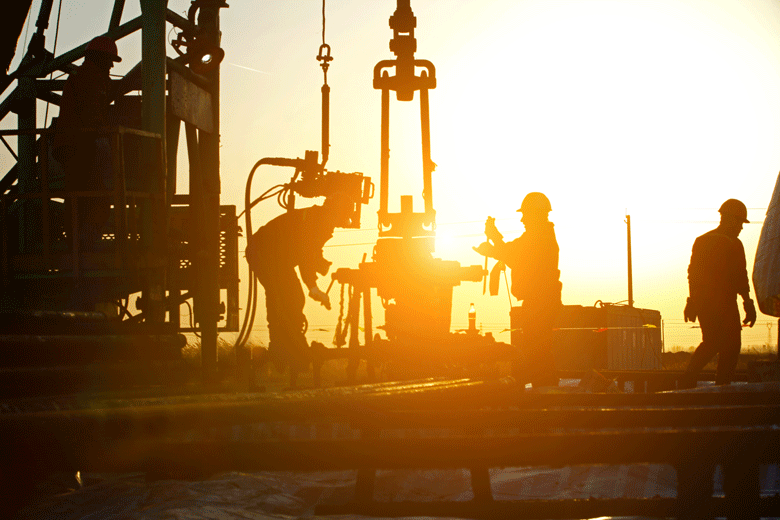

Iraq and Kuwait have appointed consultants to assess oil fields and reserves along their borders, taking a step towards ending a long-standing dispute over the ownership of resources key to both economies.
Production policy will be decided based on the study by the unnamed consultants, local media reported Iraq's Oil Minister Thamir Ghadhban as saying on 23 December at a meeting of the Organization of Arab Petroleum Exporting Countries in Kuwait City.
The oil fields straddling the border between Iraq and Kuwait have been at the centre of a long-standing dispute between the two countries.
The dispute was not just over marginal border fields. At its core was Rumaila, Iraq’s biggest producing field, which many geologists have argued continues southward into Kuwait, where it forms the much smaller Ratqa field.
Saddam Hussein accused Kuwait of slant drilling into the Rumaila field, something Kuwait has always denied, and cited this as a key reason behind his invasion in 1990.
Since the toppling of the Hussein regime in 2003, the two sides have attempted to resolve their differences over ownership and operation of the fields. Last year, Kuwait’s parliament approved a memorandum of understanding between the countries’ oil ministries for the joint development of the Rumaila/Ratqa and Safwan/Abdali fields.
“The international consultant will study the two overburdened areas on the border. According to the study, we will take a productive policy that is mutually beneficial in terms of ownership,” Ghadban was reported as saying by state-run Kuwait News Agency.
Even without an agreement with Kuwait, both countries are pushing ahead with plans to develop the fields. Operated by the UK’s BP, output from Rumaila, Iraq’s workhorse field, stands at just under 1.5 million barrels a day (b/d) today. Along with its partner PetroChina, BP plans to hit a plateau production rate of 2.1 million b/d by 2021.
The joint development of the fields has long been proposed as an obvious solution, following the model used by Kuwait in the Partitioned Neutral Zone, which it shares with its southern neighbour, Saudi Arabia. But there are pitfalls here too.
The Neutral Zone contains two fields with a combined capacity of about 500,000 b/d, which have been offline for four years due to a political dispute between the two sides.
The Khafji field is operated by Al-Khafji Joint Operations, a 50:50 joint venture of Saudi Arabia's Aramco Gulf Operations and Kuwait Gulf Oil Company (KGOC). Aramco, the field's operator, unilaterally shut production down in October 2014, citing new government emissions standards for gas flaring.
KGOC operates the Wafra field along with Saudi Arabian Chevron. The field was closed in May 2015, with Chevron saying it had encountered difficulties in securing work and equipment permits.
Despite regular meetings between the respective oil ministers, there is little sign that a resolution to the dispute is at hand.
There are even more complicating factors between Iraq and Kuwait. Iraq accepted a UN-delineated border in 1994, but it continues to cause friction with many Iraqi politicians.
Talks between the Gulf neighbours over Iraqi gas exports to Kuwait had also progressed to the final stages, according to Ghadban, although there is no indication when an agreement might be reached or the reason for the delay.
“We exported gas to Kuwait in the 1980s from the Rumaila field. But at the same time, we all know that Iraq has great needs of gas, especially to generate electricity,” Ghadban said.
Iraq began exporting small volumes of gas to Kuwait in the 1980s through a 40-inch, 170-kilometre pipeline, but exports came to a halt with the Iraqi invasion in 1990. If a deal is agreed, the pipeline would have to be replaced, making the first transfers likely in three to four years.
You might also like...

Rainmaking in the world economy
19 April 2024

Oman receives Madha industrial city tender prices
19 April 2024

Neom seeks to raise funds in $1.3bn sukuk sale
19 April 2024

Saudi firm advances Neutral Zone real estate plans
19 April 2024
A MEED Subscription...
Subscribe or upgrade your current MEED.com package to support your strategic planning with the MENA region’s best source of business information. Proceed to our online shop below to find out more about the features in each package.





